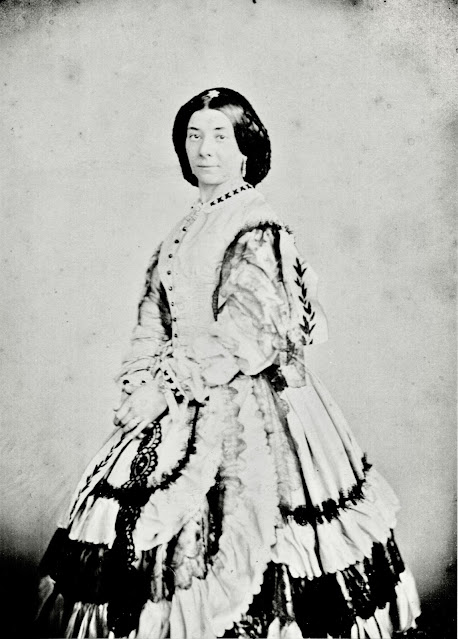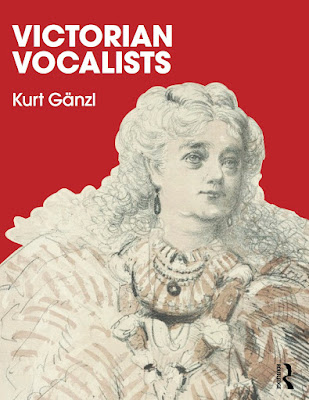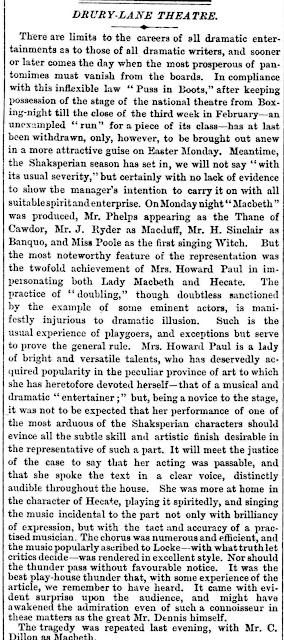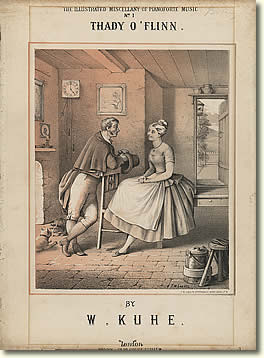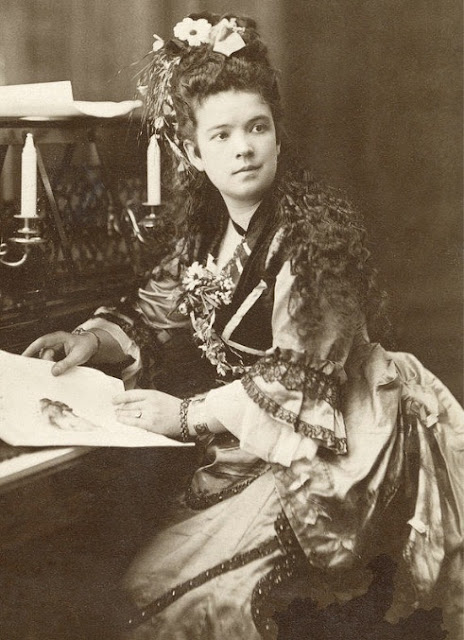A Belgian tenor, who lived for over half a century in London, making himself a formidable figure on the fashionable concert circuits in the years preceding the reign of Victoria. I will, thus, treat him summarily (though not too summarily), although he was active for a quarter of a century after the young Queen’s succession, mostly after his retirement from performing, as a teacher and a personality in the British musical world.
Ignace Begrez (ignore all texts which refer to him as Pierre) was born in Namur. His date of birth has gone down as 1787 -- enshrined thus in Choron and Fétis and copied widely thereafter – but he was, tale-tellingly, said to be 79 at his death.
A childhood friend penned a jolly little memoir about a feckless father, and a musical son, but unfortunately didn’t get round to recording any actual facts.
One is wary, very, of internet genealogists, but apparently he was one of the sons of Jean-Pierre Begrez and his wife Anne Catherine Josèphe Velart. Therefore, he can’t have been born in 1787 because his sister was. GeneaNet goes for 1784, and I go back a few weeks more. I have little doubt that I am right.
So, Choron and Fétis have begun poorly, and thus we must take their other sayings with a wee touch of salt and pepper. Young Ignace was ‘at the age of six’ entered as a choirboy at St Aubin’s Cathedral, Namur. At some stage he moved to Paris, and, in 1804, entered the Conservatoire as a violin major. He was also engaged as a violinist in the orchestra at the Académie Royale. He began to study voice seriously, under Pierre-Jean Garat, in October 1806. He was awarded a deuxième prix in 1813, and a premier prix in 1814.
Oh, I should add somewhere that, at some stage, he seems to have become the husband of one Catherine Françoise Augustine Gormet. In 1817, she turns up starting a business as 'plumassier-fleuriste' with a friend. He was, at this stage, a member of the Paris Opéra troupe. She doesn't seem to feature much thereafter.
Now, somewhere in here must be slotted one of those stories which doubtless has some truth in it, but has been made into a much-repeated jolly Cinderella tale. Cherubini was, it is related, rehearsing an Offertorium of his composition when his tenor went sick. He asked the ‘violinist and amateur vocalist’ to step in (why?), he made a great success, threw away his fiddle and became a singer.
If I hesitate unhesitatingly to believe these sources, it is because they insist that he gave up opera in 1821 or 1822 after being a ‘permanent member’ of the company at London’s Italian Opera for 6 years. Both statements are simply untrue. But that’s coming.
Anyhow, so far, my only sighting of young Begrez in these early years is singing the grand aria from
Joseph at the old Lycée Marboeuf in 1811 (2 May). Presumably after he had thrown away his fiddle.
Following his conservatoire prize, he was obligatorily indentured to the Académie Royale, the Paris Opéra. It is documented that he made a début as Renaud in Gluck’s
Armide 7 March 1815. So, I suppose that he did. It is thereafter copied extensively that he played in a reprise of the
Les Bayadères of Conservatoire professor Catel, and of Cherubini’s opera-ballet
Anacréon, ou l’amour fugitif, ‘with great success’, but of these performances I can find no record.
His success, if such it were, at the Paris Opéra was shortlived, however, for before the year was out, Mons Begrez was engaged for London’s Italian Opera, at the King’s Theatre. He left for England, and, although evidently still under contact to Paris for a while, there he would stay.
The King’s Theatre billed four tenors that season. John Braham loomed large at their not-very-Italian head, and underneath came the Spanish Pablo Rosquellas (‘Rosquelli’), the Walloon Begrez and a certain Signor Geni, who had spent most of the previous season 'severely indisposed' and just may have been Italian. Anyway, he lasted only a few performances as primo tenore.
Begrez (tiresomely billed as ‘Begri’, unless they forgot) was put up first as the Marchese Gaultiero (Lesbino) to the Griselda of Josephine Fodor in Paer’s
La Griselda, ossia, la virtù in cimento (13 January 1816) (‘He executed some of his airs in a very pleasing manner, and if his action were equal to his musical powers we should but have little to wish for’) and, while Braham naturally took on most of the season’s best roles thereafter, followed up as Nerestan in Zaira (‘sung in his best stile’), and as Guglielmo to the Ferrando of Braham in
Cosi fan Tutte, alongside Fodor, Vestris and Naldi.
Of the four Opera House tenors, only Begrez would return the next year, in fact he appeared at the King’s Theatre for the next three years. If Braham was no longer there, however, the ageing but effective Signor Crivelli and the younger Signor Garcia came to join the theatre’s tenor ranks, and it was Crivelli who was cast as England’s first Don Ottavio in
Don Giovanni, Garcia who was the first Almaviva in
Il Barbiere di Siviglia, and the two shared the tenor limelight in
La Clemenza di Tito. Begrez was cast as Annio, sharing the celebrated duet ‘Deh, prendi un dolce amplesso’ with Garcia.
In 1817, Begrez repeated his
Griselda and
Cosi, and added the parts of Don Callandro in Paisiello’s
L’Amor Contrastato ossia, La Molinara (8 March 1817) (‘sang and acted very agreeably the part of the young Baron’), and Ernesto in Paer’s
Agnese (16 May 1817) (‘[he sang] with skill and judgement; his voice is of very good compass but wants power’) both opposite Mme Fodor, and played in Ferrari’s
Lo Sbaglio Fotunato (8 May) at Camporese’s Benefit and
Elisabetta regina d’Inghilterra (30 April) for Fodor’s. When a selection from the latter piece was sung at one of Naldi’s concerts, Begrez sang the leading role of Leicester, but at the King’s Theatre Crivelli took that part, with Garcia as his rival Norfolk, and Begrez was Guglielmo, the captain of the Guard.
1818 included more
Molinara, Elisabetta, Cosi and performances of
Tito and in 1819 he took the part of Monastatos in
Il Flauto magico (25 May) and succeeded the departed Crivelli in the part of Don Ottavio. ‘Though his voice proved occasionally too feeble to find its way through the united powers of the orchestra, [he] conceived the part justly and conveyed the prevailing sentiment of the character with much truth and tenderness’, ‘with the exception of want of power the very person required for Don Ottavio, the walking gentleman’.
At the end of the year he performed with some of the Opera principals at the Dublin Theatre Royal, but he did not return to the King’s Theatre for the 1820 season.
When John Ebers took over the management of the Italian Opera, in 1821, Signor Begrez was recalled to the company. He gave more performances of
Agnese, and
La Clemenza di Tito, and sang Ruggiero in
Tancredi but he retired during the season when the managers insisted on replacing him with the ‘primo tenore’, Torri, in
Don Giovanni, in spite of the vigorous support of musical director, William Ayrton. The real ‘primo’ of the company was Curioni, and Begrez was effectively third string, which did not stop him appearing the next season, and – after Torri’s departure and during one of the new star tenor, Curioni’s illnesses -- holding the fort by himself as principal tenor. And the diverse notices continued: '
Signor Begrez has a very fine voice, and the selection of Cimarosa's celebrated aria spoke well for his taste, which, when time has a little more mellowed it ...'Monsieur Begrez had been, since his debut, always well if not extravagantly noticed for his sweet voice and his tasteful and accurate singing. His acting – mild and somewhat prissy – was not harped upon any more than Garcia’s ‘ranting’. But occasionally someone took exception.Thus, when he got up as Narcissus in
Il Turco in Italia during Curioni’s absence the
Morning Post ventured: ‘He, however, performed it very satisfactorily and gave both sweetness and expression to his part. We are glad to find that he is returned to this theatre for he is a singer of very pleasing powers accompanied by prepossessing manners’.
But the
New Monthly Magazine found him ‘too brimful of tastiness; his acting and singing are so full of douceurs, so candied, that we are cloyed by the superabundance of sweets; and although the connexion and blending of notes, the filer les sons, is a good effect when properly used Signor Begrez is an ultra in that respect too. He seldom goes from one note to another but the breath is drawn through all the intermediate quarter tones, something like the occasional shift of Mr Spagnoletti’s violin’.
As Lusignano in
Pietro l’eremita he ‘had little to do’, as Ottavio he sang ‘everything very correctly …’ ‘very satisfactory’, ‘good’ and as Rodrigo to Curioni’s Otello in the first London performances of Rossini's opera, he caused little comment.
The
Quarterly Magazine summed up the reason why Begrez was ‘an auxiliary rather than a principal’ like Curioni. ‘His voice is fine, and we prefer his manner of forming, producing and sustaining his tone to that of any tenor in London . It is more pure and at the same time more perfect which are the legitimate objects of the Italian school... It is scarcely exceeded in brilliancy even by Mr Sapio while, in finish and uniformity, it outgoes that professor ... he should fall in love with greatness …but ...'
This is where we are told by the biographists that Begrez ended his operatic career, but he didn’t. In 1823, he went with Bath to sing under the management of De Begnis, and in 1824, when the management of the Opera House was let down by Curioni – ill again – and Torri, and they hastily recalled Begrez to supplement Garcia. He played in
Otello and his detractor had another go: ‘A good musician with an indifferent voice well trained and cultivated. He thus always gives satisfaction in his endeavours to please the audience and he would succeed still better if he tried less to please himself by a style of ultra-tastiness and sugary douceur bordering upon effeminacy’. He played in
Don Giovanni, in
Il Turco in Italia, and in 1825 added the role of Almaviva in
Il Barbiere di Siviglia. He played opposite Eliza Vestris and they were both judged ‘very fair where better cannot be had’. Really?
In 1826, ‘the year of Velluti’, he seems to have been around but not performing, in 1828 he took another turn to Ireland with Madame Cornega (
Don Giovanni, The Castle of Andalucia) and in 1833 Alfred Bunn, unexpectedly deprived of Joseph Wood, called upon Begrez to play his Ottavio in English at Drury Lane. But he didn’t do it. He dropped out in rehearsal, on the excuse that his English was not good enough, and Templeton took over. And now his operatic career was over. And a thoroughly respectable one it had been.
However, it was as a concert singer that Begrez reaped his greatest success: on the platform (often with the same material he had sung on stage) where he had not the vastness of an auditorium to fill, and where his collar-and-tie swishiness was more at home than in a toga or Venetian frills.
During his first years at the King’s Theatre, Begrez began to appear in the London concerts, both public and in the homes and at the parties given by the aristocracy, the wealthy and even royalty. Often, these people hired a whole section of the Italian opera principals of the season for their programmes, and the buffo Naldi was an adept organiser. Begrez was frequently of their number, but he also appeared, from the first, in other more ‘English’ concerts, beginning with the Choral Fund, progressing to the concerts of the Philharmonic Society, the Drury Lane oratorios and taking part in the Birmingham Festival of 1820.
The lucrative private functions – dinner parties, fëtes, ‘fashionable parties’ -- were often not reported in the press, but I spot him singing for the Duchess of Sunderland, the Marchioness of Salisbury, Mrs Edmund Boehm, the Marchioness of Cholmondely, Prince Leopold, Lady Shelley, the Duke and Duchess St Carlos, Countess San Antonio, Lady Owen, the Marchioness of Lansdown, Lady Hobhouse, the Duke of Devonshire, the Hon Mrs North, the Marquis of Hertford and His Majesty the King at Carlton Palace.
The public concerts were a different thing, and a list of even just those I have found in Begrez’s quarter of a century of London singing fills an impressive number of pages. One of his earliest engagements was with the already lofty Philharmonic Society (26 February 1816) performing a ‘very beautiful’ Cimarosa quartet with Le Vasseur, Naldi and Rovedino, and he contributed to three others of their performances of the season with the
Cosi fan tutte trio ‘Una bella serenata’ (Naldi, Le Vasseur) which win an encore, Idomeneoî’s ‘Placido è il mar’ and ‘Pria di partir’ (Fodor, Miss Goodall). Farinelli’s duo ‘Al mio dolce e vivo ardore’ (Mrs Ashe). He would perform regularly at the Society’s concerts for some 15 years. (Mozart’s ‘Parto’ ‘in a very chaste and impressive manner’, ‘Pria che spunti’ and the ensembles ‘Son io desto’,
Nozze di Figaro trio,
Zelmira duet,
Medea quartet, ‘E fia ver’,
Mount of Olives duet,
Donna del lago duet,
Ricciardo trio,
Barbiere di Siviglia quartet, ‘Perfida Clori’ &c) harmonising with the great and the good of the London music world.
The body of his public work was, however, in the personal concerts staged by musicians, and a number of the most popular artists included Mons Begrez on their programmes every year for numbers of year. The first, was the Opera conductor Spagnoletti who billed Begrez in 1816, and thereafter yearly into the 1820s. Guiseppe de Begnis was another whose guest list long included Begrez with whom he delighted to sing comic duets which the press found odd, opining that the tenor didn’t have a funny bone in his body. In Martini’s laughing trio (‘Vadasi mia di qua’) ‘if Signor Begrez could be induced to forego a little of his dignity on such subjects as these he might take a hint from the unaffected good humour of de Begnis’. Begrez was still singing for de Begnis in 1838. The violinist and impresario, Mori, featured Begrez in many of his London and provincial concert, into the 1830s, the flautist Nicholson was another regular, the ultra-fashionable Puzzi’s frequently invited the now fashionable Mr Begrez to their annual gala, Bochsa, the Bishops, and latterly Susan Bruce, the guitarist Huerta, and the pianist Kollman were all takers.
Amongst the events of Begrez’s busy career were included the 1819 Edinburgh Festival alongside Braham, Ambrogetti and the Misses Corri (‘who to a melodious voice unites the finest and most delicate taste’ ), the 1820 Birmingham Festival at which he and Ambrogetti were the only non-British soloists, and the 1821 Westminster Abbey Festival at which he, Angrisani and Mme Camporese were the non-British artists, and the same year’s Bristol Festival top-billing with Catalani, Mrs Salmon and Sapio. He sang in the Covent Garden oratorios of 1822, in Bochsa’s The Deluge and a ¾ hour selection from Burghersh’s ‘dull’ Bajazet, and in 1824 took part in the concerts given by Rossini, duetting with the composer's wife Isabella Colbran and delivering the Italiana in Algieri trio ‘Pappatacci’ with Remorini and Rossini himself.
In the West of England concerts he essayed oratorio – which he had done in his student days -- 'Signor Begrez is a cultivated singer of the Italian school. In English he gave ‘Thy rebuke’ in a stile extremely chaste and pathetic’, and he also began essaying with success the English song ‘Oh no, we never mention her’.
In 1829 he sang the role of Damon in Acis and Galatea at Bochsa’s concert, in 1831-2 he sang the music of the picturesque Mary-Ann Jervis ‘with unusual effect’ chez Mons Oury and the Viscountess St Vincent and, in 1832, he appeared in the Exchequer Court, where he pleaded diplomatic immunity (we are not told for what) as a servant of the Bavarian ambassador. He had long been a member of the Bavarian Chapel Choir. He proved his point, and the case became a precedent.
Begrez sang in several languages. Among his favoured items, however, there were originally few English pieces. He favoured ‘Pria che Spunti in ceil l’aurora’ (Il Matrimonio segreto) and the ‘Fra tante angoscie’ of Carafa, but was particularly successful and in demand as a duet partner, and regularly partnered most of the most famous performers of the time from Fodor, Camporese, Pasta, Cinti, Catalani to de Begnis, Seguin, Caradori, Colbran, Mrs Balfe and Mrs Salmon. He was equally popular in operatic ensembles of which a particular favourite ‘La mia Dorabella’. Latterly, he favoured Beethoven’s ‘Adelaide’. Only on occasion did he bring out his English repertoire, or a French romance accompanying himself on the guitar.
Begrez's sister Antoinette Victoire Begrez (b Namur 1787) seems to be the soprano Mlle Begrez who turns up at Marseille and Aix in the 1840s. Although I see another sister, Jeanne Françoise Joséphine Begrez, and another Marie Catherine Josèphe ... I guess one of them was the Mme Begrez-Bernonville with a big dramatic voice ... or maybe the 1840s lady was (given the dates) a niece ...?

